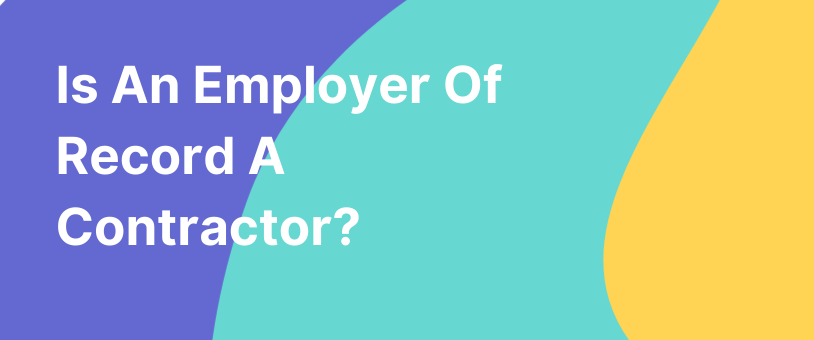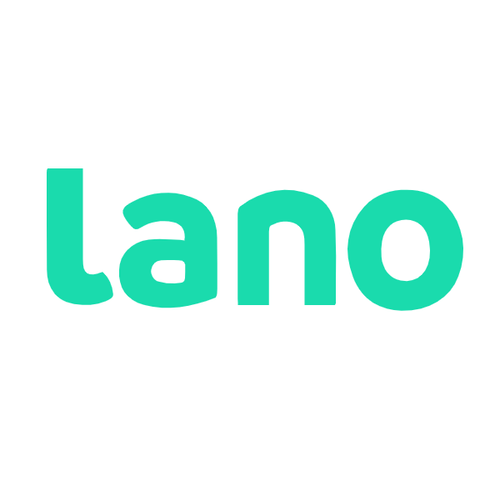You’re considering working with an employer of record (EOR), but you don’t know how the legal relationship between your business and the EOR works.
This guide will shed some light on the business relationship between your business and an employer of record provider.
How the business relationship between an employer of record works
Is an employer of record a contractor? No. When you work with an employer of record you typically enter a business contract. Much like you would with any other type of business that provides a solution or service to your business.
A business contract with an employer of record will typically outline the following terms:
- The names and contact information of all parties involved
- The details of the agreement, including what services or products will be provided and the amount involved
- The timeframe of the agreement, including the start and end dates
- The terms of payment, including when, how much, and how often payments will be made
- How disputes will be resolved, such as through mediation or arbitration
A good contract will also include details such as:
- Any specific requirements or expectations for the services or products being provided
- Any warranties or guarantees for the services or products being provided
- Any exclusivity provisions, such as if one party is prohibited from working with other companies during the contract period
- Any confidentiality provisions, such as if one party is required to keep certain information confidential
- Any intellectual property provisions, such as if one party is transferring ownership of any intellectual property to the other party
- Any indemnification provisions, such as if one party is agreeing to hold the other party harmless in the event of any legal claims
- Any termination provisions, such as if either party has the right to terminate the contract under certain conditions
- It’s important to have all of these details clearly laid out in the contract to avoid misunderstandings and potential legal disputes in the future.
Is an employer of record a business partner?
Although some solutions may market themselves with the term “partner”, and working with one can seem like you have a business partner, an employer of record is not typically considered to be a legal business partner.
An employer of record is a company that acts as the official employer for an individual or group of workers, even though they may be working for another company. This arrangement is often used when a company wants to hire remote employees but doesn’t want to go through the process of setting up a formal business entity in other countries.
In this case, the employer of record would be responsible for handling all of the administrative and legal aspects of the employment relationship, such as payroll, benefits, and compliance with employment laws.
What’s considered a business partner:
A business partner, on the other hand, is typically someone who is actively involved in the management and operations of a business, and who shares in the profits and losses of the business.
A business partner may have a more formal legal relationship with the company, such as through a partnership or joint venture agreement. The exact nature of the relationship between a business partner and a company will depend on the specific circumstances and the terms of any agreements between the parties.
Additional legal considerations when partnering with an employer of record
The legal requirements for partnering with an employer of record will depend on the specific circumstances of the arrangement and the laws of the jurisdiction in which the parties are located. In general, however, there may be several legal considerations to keep in mind, such as:
Employment laws
Depending on the jurisdiction, there may be specific employment laws that apply to the relationship between the employer of record and the workers they are representing. These laws may cover issues such as minimum wage, overtime pay, and workers’ compensation. It’s important for both parties to be familiar with these laws and to ensure that they are being complied with.
Tax laws
There may also be tax laws that apply to the relationship between the employer of record and the workers they are representing. These laws may cover issues such as the payment of income taxes, employment taxes, and other taxes that may be applicable.
Contract laws
The partnership between the employer of record and the company that is hiring the workers will typically be governed by a contract. This contract should be carefully drafted and reviewed to ensure that it accurately reflects the parties’ intentions and that it complies with all applicable laws. The contract should also include provisions for how any disputes will be resolved, such as through mediation or arbitration.
Other legal considerations
Depending on the specific circumstances of the partnership, there may be other legal considerations that need to be taken into account. For example, if the employer of record is providing services to the company that are subject to intellectual property laws, there may be specific provisions that need to be included in the contract to protect both parties’ interests.
Consult legal counsel before entering a contract with an EOR
It’s important for both parties to be aware of the legal requirements and to consult with legal counsel if necessary to ensure that their partnership is in compliance with all applicable laws.
We are not lawyers, and this article is not legal advice. This article is informational in nature. We highly recommend talking to a contract lawyer before signing anything.
Our recommended EORs
Remote is a robust and modern platform for remote-first teams. EOR, contractor management, payroll, benefits, and more.
Oyster is an intuitive platform that allows you to hire, pay, and care for a global team in more than 180 countries. EOR, contractor management, payroll, benefits, and more.
TFY has features for applicant tracking, freelance management, payroll, and more in a single platform. The platform supports diversity hiring and Corporate Social Responsibility (CSR) initiatives.
Lano is both a B2B & B2C platform. Businesses can use it to process global payroll, hire remote talent and manage contractors, while employees and freelancers can benefit from its payslip service, invoicing app, multi-currency wallet, and more.





